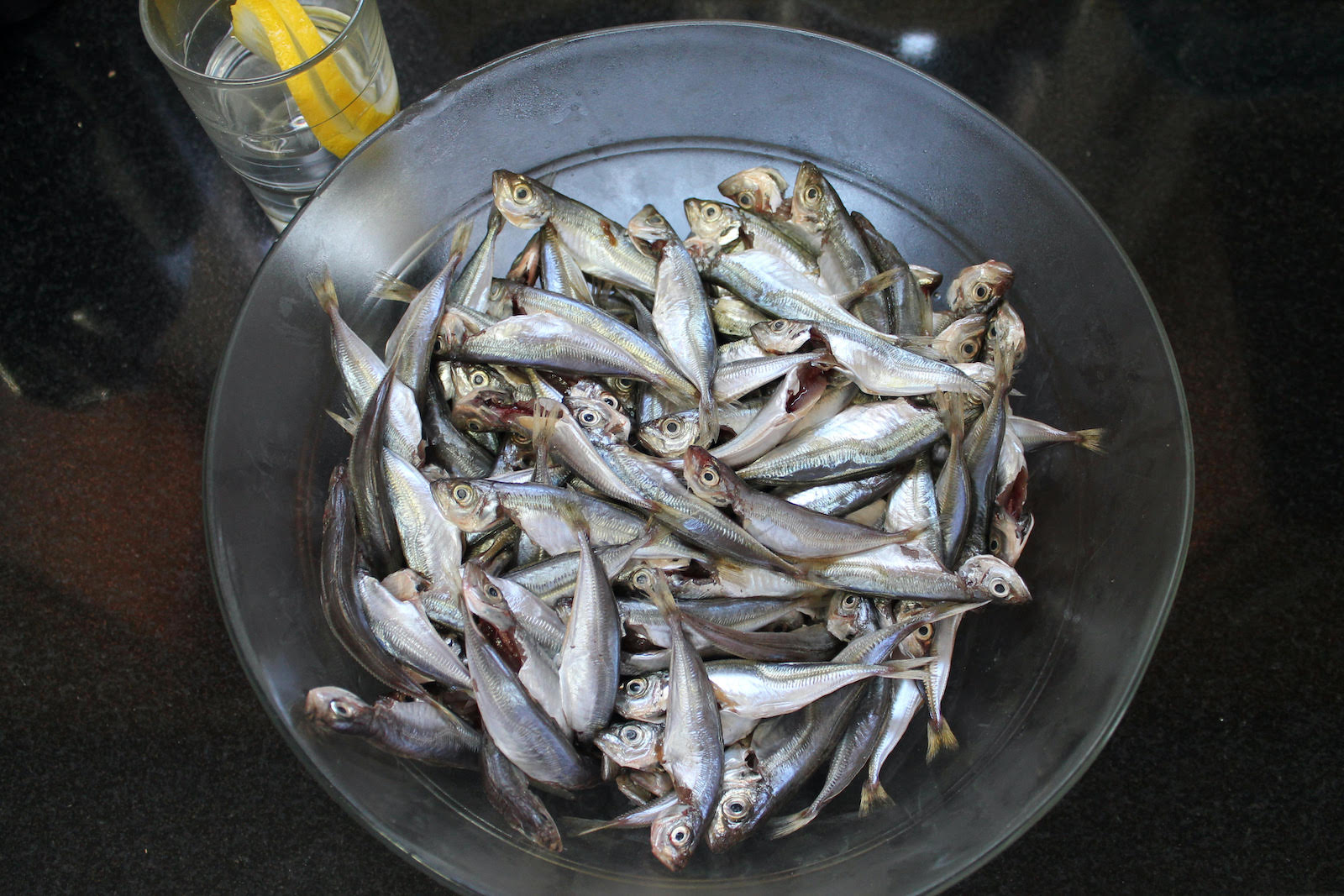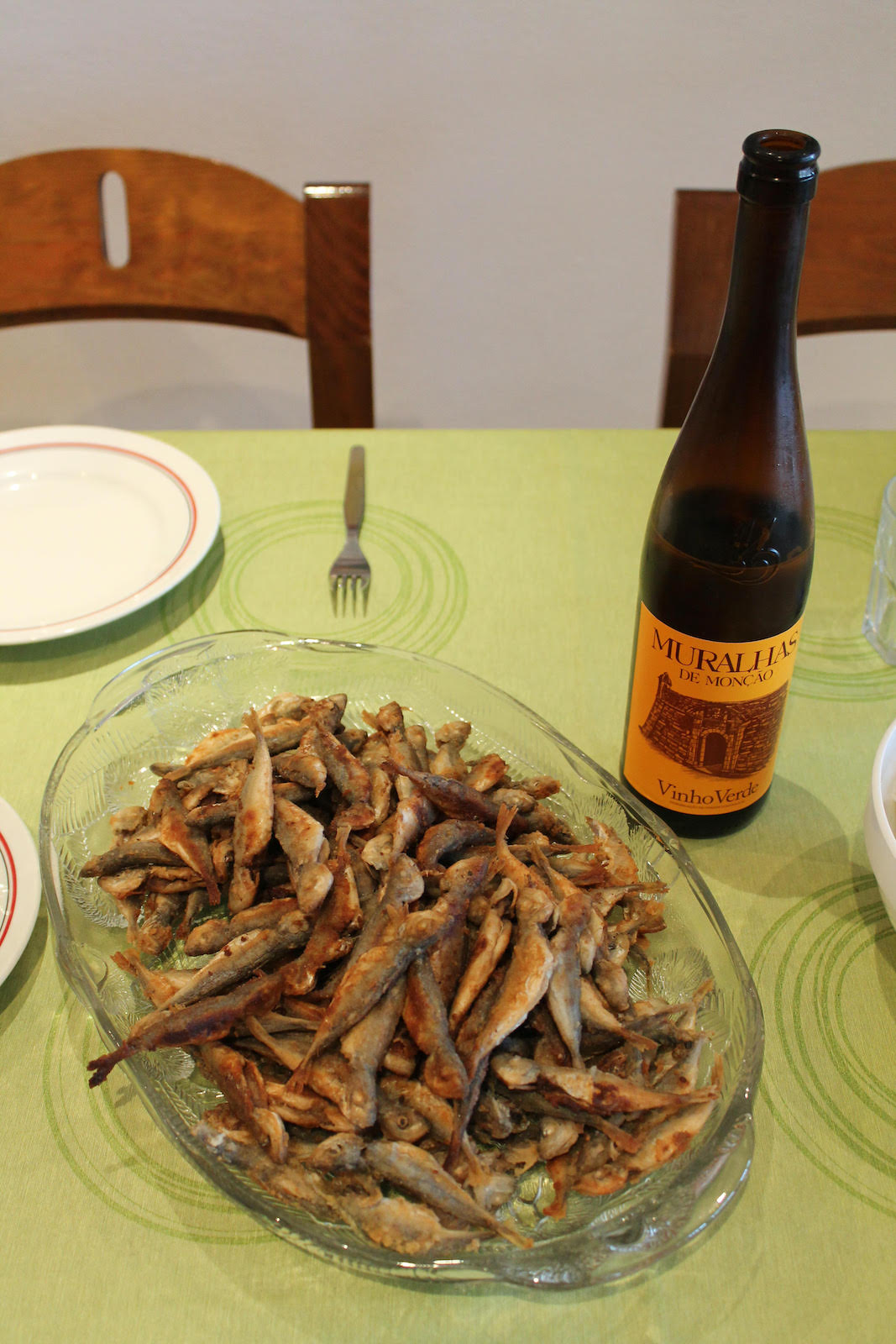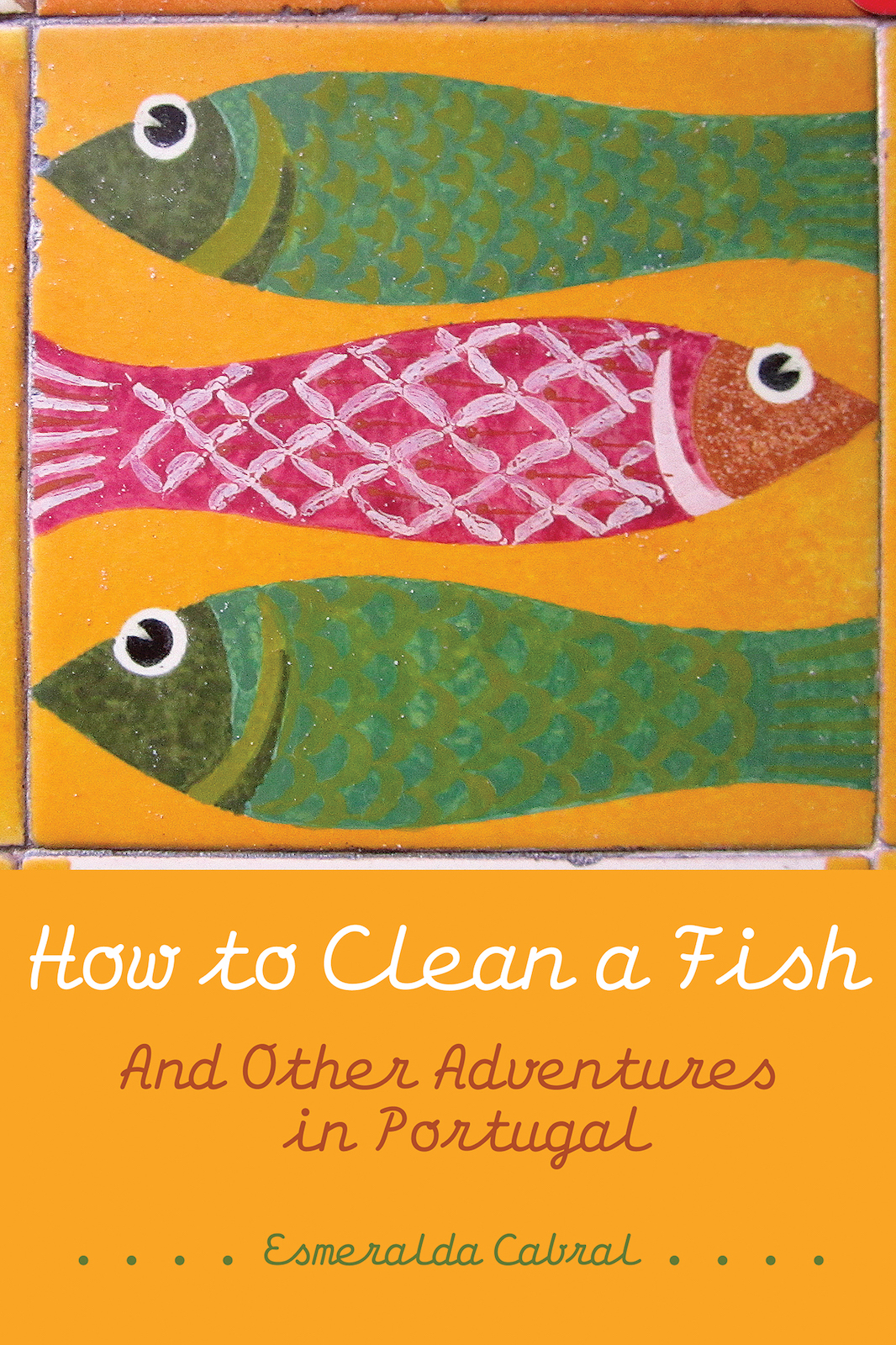After Esmeralda Cabral returned to her birth country of Portugal for eight months, with her Canadian-born family in tow, she chronicled what it’s like to be immersed in a culture both familiar and foreign. In this passage from her new book, How to Clean a Fish: And Other Adventures in Portugal, the Vancouverite describes a visit to the local market with her son and daughter.
As if Matt and Georgia sensed our looming departure too, they opted to accompany me on my market shopping trips more frequently.
The three of us walked to the market one morning, looking for inspiration for something to make for dinner. We started with coffee, chocolate milk, and a few tarts at Nutritiva, the big coffee shop and bakery near the main square. We saw (and heard) a group of four men outside, on the street corner, having an animated discussion. They all looked roughly the same age and sported similar balding patterns. They were short, stocky men, and each one was wearing a short-sleeved dress shirt and jeans cinched to the waist with a belt. They were gesticulating wildly and pointing emphatically in different directions. One of them hit his forehead with the palm of his hand, then walked away for a few steps, then came back to the group. Their voices rose, then dropped, then rose again, their sentences punctuated with body language and mixed inflections. Around them, life carried on, and no one seemed interested in their conversation. Except us. I wondered if a physical fight would break out. On our way out of the coffee shop, we walked past them, and Georgia asked if I could tell what they were talking about.
“Yes,” I said. “They are talking about the location of a particular restaurant. It sounds like they can’t agree which street it’s on.”
Both Matt and Georgia stopped walking.
“You’re kidding, right?” Matt said. “They are fighting about that?”
“They are not fighting, they are discussing,” I corrected.
It’s a mistake I remember my high school friends making when I brought them home after school. Eventually, they would confide in me that it sounded like my family was always fighting.
The men on the corner were obviously passionate about their opinions.
“Ah,” I said to Matt and Georgia. “That little scene makes me feel like I belong here.”
“I get that. I really do,” Georgia said. “You move your arms exactly like that when you’re trying to explain something.”
“And you yell like that too,” Matt added.
“They are not yelling. They are just raising their voices for emphasis,” I said. “It’s called inflection. Sheesh.”
We walked into the market, and I steered us towards the ice room at the back where about a dozen fishmongers had set up their stands.

Stickleback, cleaned and ready to cook. Photo by Esmeralda Cabral.
I was looking for carapauzinhos. In the last few weeks, I had bought these several times and I hoped they were still in season. I remembered eating these fish when I was a child in the Azores, except that we called them chicharros. When I consulted my Portuguese-English fish dictionary, I learned that both are types of stickleback—essentially the same fish.
At first, I had been unsure about buying them because I couldn’t remember how to clean them. I needed a refresher. It’s a little tricky to remove the guts but keep the tiny fish relatively intact. The first time I bought them, I asked the fishmonger if she could teach me. She said,
“Don’t worry, we do it for you.”
“Yes,” I said, “but I’d like to learn how to do it.”
“What on earth for? No one does that anymore. Now we have fishmongers. I’ll do it for you, and it’ll be quick. How many do you want?”
That first meal of fried fish had been so simple to cook. When we sat down to eat, I had explained how to take the fish apart, which part of the head to eat and which to discard, and how to take the meat off the bone, right to the tail. The most important thing, I remember saying, is to use your hands. No knives and forks allowed.
It had bothered me that I hadn’t cleaned the fish myself. It felt like I was cheating. I remember my mother telling me many times that this was a skill I needed to learn. I had watched her do it so often but had never tried it myself. Maybe she believed that she would have a lot of time to teach me, or I thought I’d have forever to learn.
On this day, I wanted to buy carapauzinhos again, before they went out of season. And I still wanted to learn to clean them myself. When we walked into the ice room at the market, it was as if we had been transported to a fish lover’s heaven.
I asked for carapauzinhos, enough for three regular appetites and one very hungry teenager. The fishmonger looked at Matt, smiled, and started picking fish off the heap of ice on the table and throwing them into a bowl.
“You know, I’m going to be leaving soon,” I told her. “I’m kind of running out of time to learn how to clean fish. It’s my goal before I leave, remember.”
Matt and Georgia stepped back and turned around as if looking at other fish, other stalls. I’d embarrassed them again, brought attention to our being different, and to my ignorance.
“Okay, okay,” she said. “How about if I do most of them, you can watch me if you want, and then I’ll leave a few for you to do at home. How would that be?”
“Sure, that sounds like a great idea. Leave me a dozen or so?”
I inched up close to the counter and fixed my eyes on her hands while she ripped through the fish so quickly, it was hard to follow.
“You’re so fast!” I said. “Can you do a few slowly so I can really absorb it?”
She sighed heavily and turned to her partner, who was also standing there watching her, and said, “See what I have to put up with? I have no idea why she’s so adamant about doing this herself.” She said all of this as if it was an imposition, but I could tell she was pleased with my request to learn from her. She looked proud of herself.
She took one fish and gave me step-by-step instructions. “You hold the head on both sides, with your thumb and forefinger like this, then take the fish by the neck, like this, watch me, and pull out the guts. If you do it properly it’s a quick, two-step process.”
She wrapped up my fish and weighed the package, then handed me the bill and said, “I gave you a discount since I didn’t have to clean them all.”
She took my money and gave me a smile and a wink in return.

Fried stickleback. Photo by Esmeralda Cabral.
We left the market and headed towards the beach. As we passed the outdoor patio of one of the seaside restaurants, we saw the four men who had been arguing earlier, sitting together at a table. There was red wine in their glasses and a bottle in the centre of the table. They were talking and laughing and looking focused on deboning their fish.
“I guess they found their restaurant,” I said to Matt and Georgia. “But let’s keep going. It sounds like they are talking about soccer, so things could get heated.”
Excerpted and adapted with permission from How to Clean a Fish: And Other Adventures in Portugal by Esmeralda Cabral. Published by University of Alberta Press. ©2023. All rights reserved.
Read more stories about food and drink.









